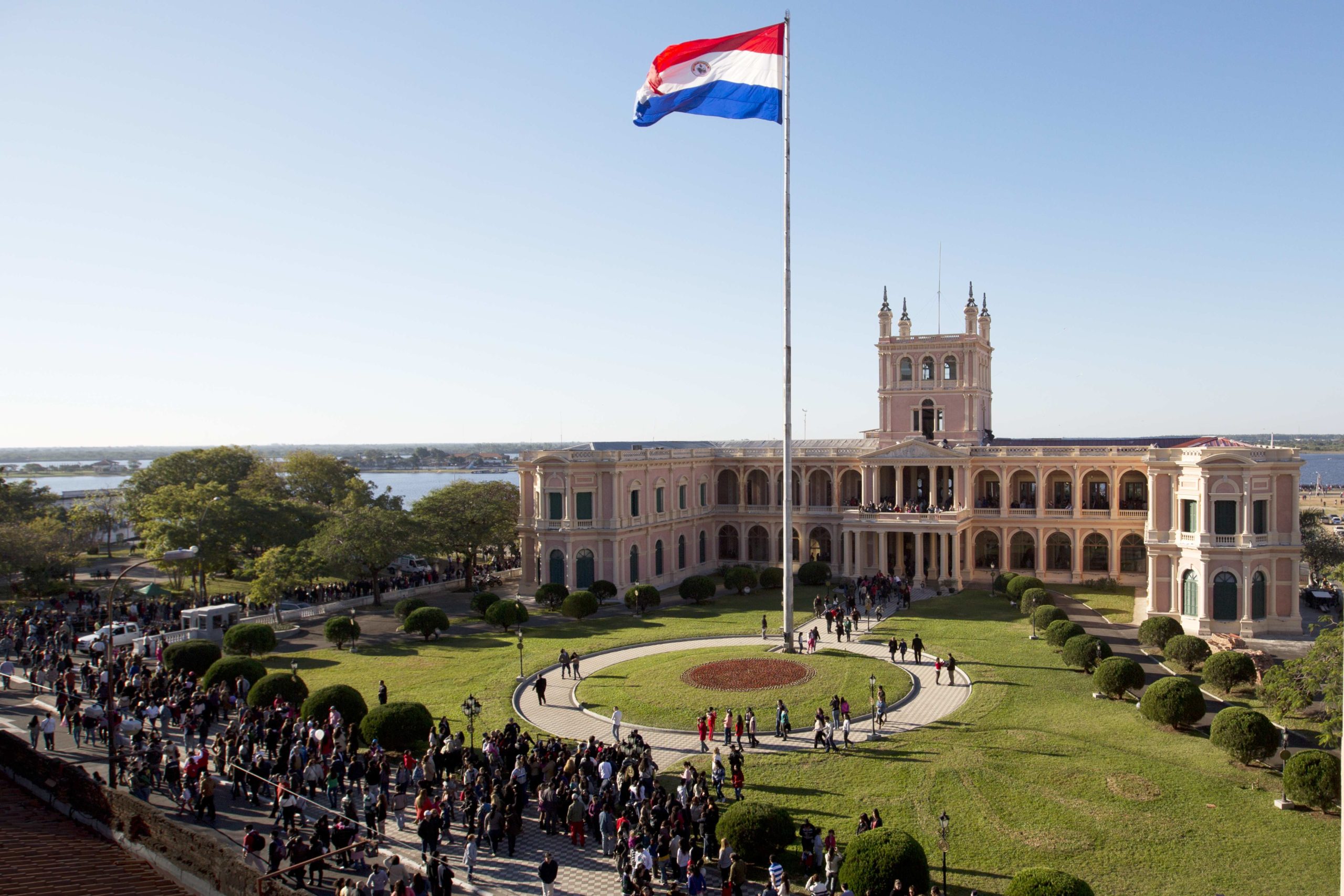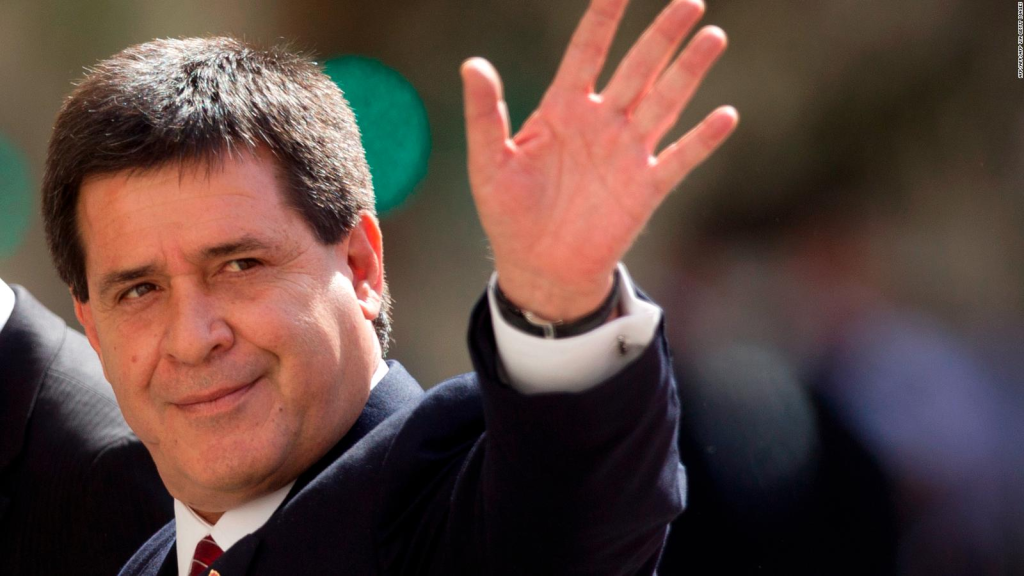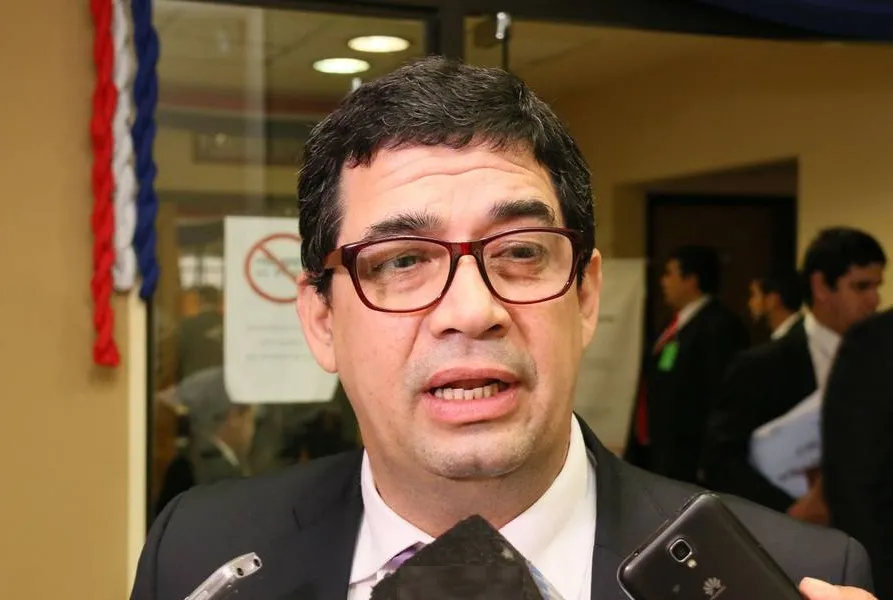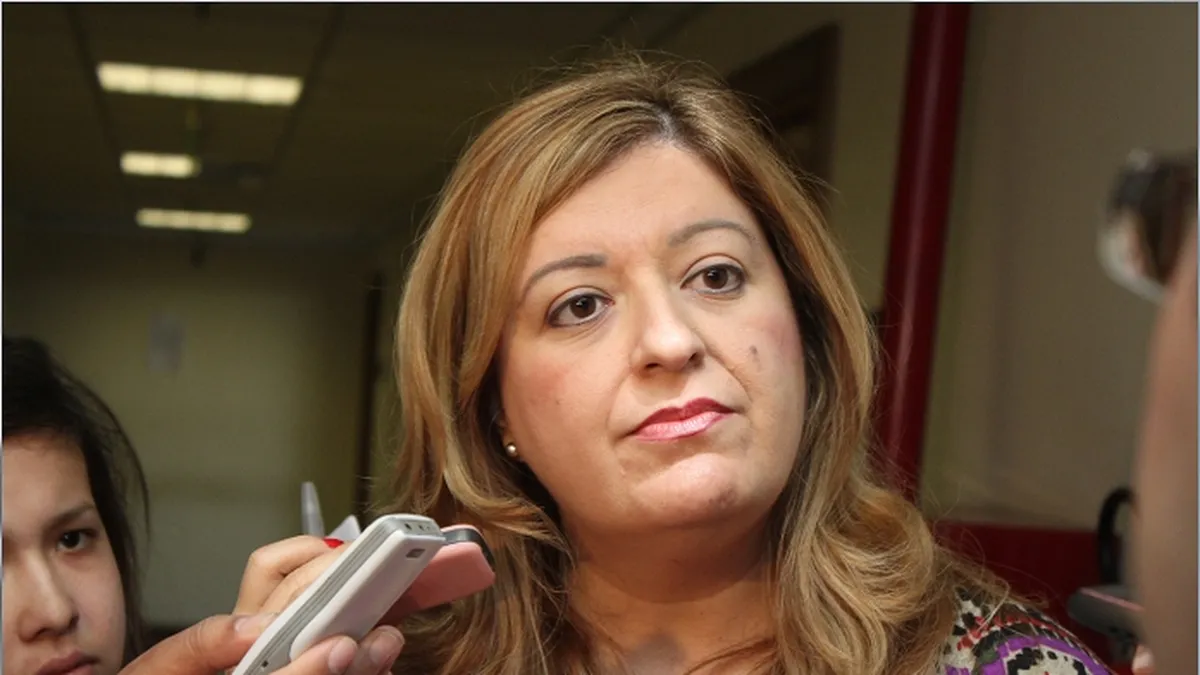By Miguel Santos García
(Opinion) The U.S. turned the Paraguayan political world upside down in a new cycle of Hybrid Warfare against the South American nation by employing sanctions and allegations of corruption against members of its political class.
This article focuses on the incidences of these sanctions and allegations and their impact on Paraguayan political dynamics.
On July 22, the United States government sanctioned former Paraguayan President Horacio Cartes, who governed from 2013 to 2018, by including him in the Engel list of persons considered “significantly corrupt” by the U.S. State Department, thus prohibiting his entry to the North American country and freezing his assets.
Read also: Check out our coverage on curated alternative narratives
The announcement was made at a press conference by Marc Ostfield, US Ambassador to Paraguay in the capital of the South American nation, and jointly by Antony Blinken, Secretary of State, who issued a statement in Washington.

Likewise, Ostfield’s announcement was preceded by great expectation and euphoria by leftist Paraguayan politicians, demonstrating prior knowledge and synchronization on their part.
Based on these allegations against the former president of Paraguay, Horacio Cartes, a series of events unfolded in the country that constituted an ongoing soft coup d’état.
The Engel List serves as a device by which the U.S. regulates the severity and logistics of sanctions in a given Hybrid War.
This US-Northern Triangle Enhanced Engagement Act was passed in 2020 to supposedly sanction actors involved in acts of corruption or attacks on democracy in the Latin American region.
However, it is more than a list; it is a nexus for the information they receive from their various proxy elements within Paraguay.
Following the first round of Hybrid Warfare in July against former President Cartes, the second round of accusations was made the following month, this time against Paraguay’s Vice President himself, Hugo Velázquez, as he was included in the Engel list on August 12, 2022.
Vice President Velázquez was an aspiring candidate for the ruling conservative Colorado Party in the 2023 presidential elections if he won the party’s upcoming internal primaries in December 2022.
But on the same day, he was singled out by U.S. State Department staff he publicly announced that he was resigning as vice president.
However, days later, on August 18, 2022, Hugo Velázquez held a press conference to make it clear that he would not resign from his position because the allegations made against him were not accompanied by evidence, nor had he been accused of corruption in the United States at any level.
(100 Years of U.S. Meddling & Regime Change, from Iran to Nicaragua to Hawaii to Cuba)
Hugo Velázquez desisted from formalizing his resignation as Vice President and anticipated that he would request evidence of the accusations against him from the corresponding agencies in the United States.
Conservative-ruled Paraguay is undergoing a technical soft coup d’état against the vice-presidency of the republic, the prosecutor’s office, and the electoral process in general.
This led Hugo Velazquez to initially resign from his post, assuming that criminal proceedings and evidence accompanied the allegations by U.S. government personnel.
While, on the one hand, Hugo Velazquez confirmed that he would continue to exercise his position as Vice President of Paraguay, on the other hand, he did formalize his substitution by Arnoldo Wiens to the pre-candidacy for the Presidency of the Republic for the movement Fuerza Republicana.
A Communiqué of August 18, 2022, by Vice President Hugo Velazquez, explains why he did not resign his position as he had initially said, reads as follows:
I have decided not to resign from the Vice Presidency of the Republic because, as any Paraguayan citizen, I am protected by the Constitutional Right to due process and, fundamentally, the presumption of innocence.
I will ask the relevant agencies about the details of what I am accused of: an alleged attempt to bribe a high local public official through another person, something that I categorically deny and never happened.
Only last night, I received confirmation that the Public Prosecutor’s Office, the body in charge of investigations into punishable acts in Paraguay, does not have an open case against me and will request a detailed report with specific data from the Embassy of the United States of America.
When I initially spoke about my resignation, I did so because I assumed, given the statements, that there was some ongoing investigation, which I have proven is not the case.
I also want to clarify that my resignation from the presidential pre-candidacy is immovable. Therefore, I will even resort to the U.S. courts to clear my name and that of my family. I reaffirm my support to comrade Arnoldo Wiens and my movement Fuerza Republicana […].”
These allegations by the U.S. government also included Juan Carlos Duarte, former prosecutor, and friend of the vice-president. His inclusion in the Engel list implies that he and his family members cannot enter the U.S.

The allegations against the former president, the vice-president, and the former prosecutor seek to delimit political processes, thus channeling electoral processes that should be purely sovereign.
Read also: 100 years of U.S. meddling & regime change, from Iran to Nicaragua to Hawaii to Cuba
With this round of sanctions, allegations, and political deception unleashed by the U.S. and synchronized with groups of Paraguayan politicians acting as pro-US proxies, they called a press conference amid all this political chaos to try to carry out an impeachment trial against the Attorney General of Paraguay, Sandra Quiñonez.
Still, this attempt failed for a lack of votes in the Chamber of Deputies.
Ms. Quiñonez was appointed under the Cartes government and, as a prosecutor, is known for her efficiency in fighting terrorist acts in Paraguay, such as the kidnapping and murder of Cecilia Cubas and the fight against the EEP and FARC guerrillas.
Political interference occurs when a foreign government initiates proceedings or allegations against a former president or democratically elected Paraguayan official.
Therefore, if there is any pending justice, it must be resolved by the judicial process of the Republic of Paraguay.
The Hybrid War against Paraguay takes the form of a soft coup d’état right in the middle of an electoral process of political primaries.
This shows that one of the possible objectives of this coup d’état is effectively to filter the candidates to control the very pathways to power.
What is equally worrisome are the groups of politicians who, from a left-wing perspective, serve as proxies for the U.S. government within the traditionally conservative-ruled South American country.
In 2012, the then president of Paraguay, Fernando Lugo, was removed from office in a coup d’état using lawfare in which he was removed as president of Paraguay in a one-day impeachment trial.
The U.S. has been using the issue of smuggling in the region for years to continue the infowar Hybrid War pressure on Paraguay, repeating false news for the Paraguayan media about alleged links of the Hezbollah organization with the triple border.
However, the real reason is that Ciudad del Este, right on the triple border, serves as a nexus for the entry of capital from the Middle East and Asia.

This time in connection with the illegal hijacking of the Venezuelan-Iranian plane held by Buenos Aires at the request of the U.S. to justify the U.S. militarization of the triple border.
Currently, there are negotiations for the construction of a U.S. military base in the area where Brazil, Argentina, and Paraguay converge in an attempt to resist the multipolar influence in the region, especially the indirect commercial relations between Paraguay and China via Ciudad del Este.
At present, with the hijacking of the Venezuelan airplane by the Argentine government at the request of the United States, the game plan being followed by those who orchestrated this soft coup d’état in Asunción is that for the next elections.
There will be no other option than pro-US candidates to facilitate zero-sum domination of Paraguay by the North American giant.
There is a debate within the Paraguayan state about increasing trade and establishing bilateral relations with the People’s Republic of China.
Documents reported that individuals close to Hugo Velasquez were about to move closer to China. Paraguay is, along with Belize, Guatemala, and Honduras, among the few countries that still have official relations with the island of Taiwan over China.
Secretary of State Blinken strongly recommends that Paraguay strengthen its relations with Taiwan and avoid recognizing China. Taiwan, for its part, accuses Beijing of offering Chinese-made Covid vaccines to pressure Paraguay to break ties with the island.
The U.S. empire is losing its zero-sum control over its vassals in South America due to the global transition to multipolarity, especially regarding relations with Taiwan and China in tune with the Hybrid War.
Thus, Washington is constantly pushing to suppress de facto trade between China and Paraguay.
Such a narrative of smuggling and Hezbollah emerges whenever the U.S. embassy needs to justify its interference, coups, and military injunctions to solidify relations with Taiwan.
It follows that the U.S. wants Paraguay to minimize relations with China, which means that a foreign state sets Paraguay’s geo-economic policy in a fatal affront to its sovereignty.
However, let us understand the sanctions, political sabotage, and character assassination — synchronized with pro-US proxies in Paraguay — that the U.S. perpetrated against several members of the Paraguayan political class.

It sought consolidation of the electoral process that would favor U.S. proxies in Paraguay, those who facilitate the surrender of Paraguayan sovereignty.
This situation of neocolonial interference may make it clear to the countries that still maintain relations with Taiwan that such ties do not make them immune from being destabilized by a U.S. Hybrid War.
On the contrary, it predisposes them to constantly being regulated from the outside.
Being in the pocket of the U.S. is the most dangerous and vulnerable situation a nation can be in.
Join us on Telegram: t.me/theriotimes

